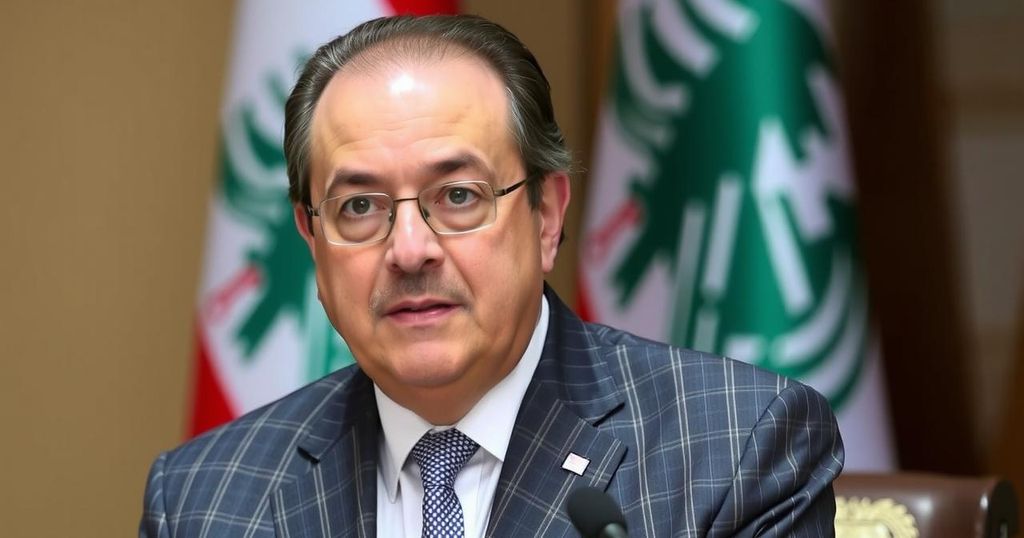Lebanon Appoints ICJ Judge Nawaf Salam as New Prime Minister

Lebanese President Joseph Aoun appointed Nawaf Salam as prime minister to address the ongoing economic crisis after a two-year caretaker government. Salam received significant parliamentary support and is noted for his impartiality. His appointment reflects a shift in Lebanon’s political dynamics, particularly against Hezbollah’s influence. The new prime minister faces substantial challenges in implementing reforms and rebuilding Lebanon’s economy. Although initially nominated, forming a functional government may still prove difficult due to entrenched political divisions.
On Monday, Lebanese President Joseph Aoun appointed Nawaf Salam, the presiding judge at the International Court of Justice in The Hague, as the new prime minister of Lebanon. This decision comes after a prolonged period of political instability characterized by a caretaker administration lasting over two years. Aoun’s nomination received broad support within the parliament, with 84 lawmakers endorsing Salam, while only nine favored the interim prime minister Najib Mikati, and 35 abstained from supporting either candidate. President Aoun emphasized the hope for a prompt and smooth formation of the government to address the nation’s economic crisis.
Nawaf Salam’s nomination is viewed by some lawmakers as a significant political initiative free from foreign influence. His supporters regard him as an impartial leader capable of implementing essential reforms to aid Lebanon’s recovery. In contrast, critics argue that the former Prime Minister Mikati is symbolic of the entrenched political corruption that has exacerbated the financial collapse. Salam faces enormous tasks ahead, including aiding in reconstruction efforts from past conflicts and fulfilling the requirements for international financial support.
The context of the political dynamics affects Salam’s position; following Aoun’s recent presidential election, which occurred after a two-year gap, Aoun has emphasized a shift towards a new phase for Lebanon. Amidst these developments, Hezbollah’s influence appears challenged, prompting discussions about the group’s future role in Lebanese politics. There remains skepticism regarding the ability to quickly form a government given the country’s deeply entrenched political divisions. Thus, despite the initial nomination, the path to a functional government is fraught with challenges.
Lebanon has recently endured extensive economic turmoil and political instability, compounded by a caretaker government’s inability to enact reforms. The political landscape changed significantly following the weakening of Hezbollah after conflicts with Israel, enabling President Joseph Aoun to finally select a prime minister. Salam’s candidacy emerges amid criticisms of established political figures like Najib Mikati, who are often associated with past governance failures versus the hope offered by independent and reform-minded politicians.
The appointment of Nawaf Salam as Lebanon’s prime minister signifies a potential turning point in the nation’s governance, amidst aspirations for political reform and economic recovery. With broad parliamentary support, his challenge lies in overcoming the historical political divisions and implementing necessary changes to address the country’s pressing issues. The future of Lebanon’s political climate remains in flux, as the nation seeks stability and progress in the wake of prolonged adversity.
Original Source: www.hindustantimes.com








